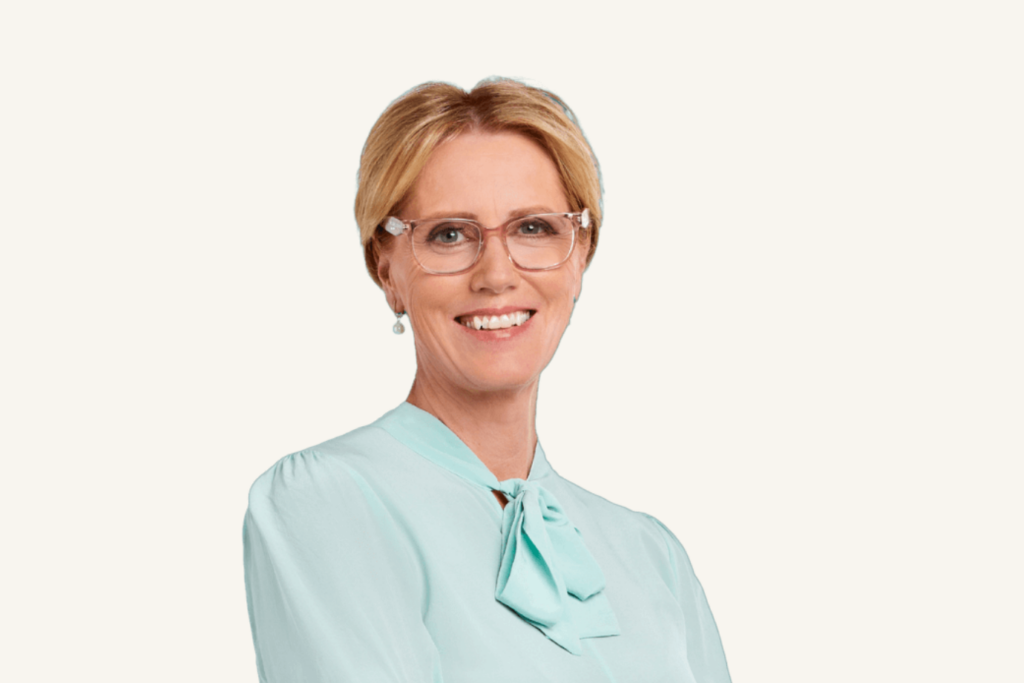Independent member of Goldstein, Zoe Daniel has been hard at work campaigning ahead of the federal election, handing out leaflets at train stations and running community information sessions. She’s also trying to get in front of voters where they are at, whether that’s on podcasts or on Reddit.
“The biggest challenge for, not only me as an independent, but for the major parties too, is how do you reach people, and particularly, how do you reach those critical demographics,” Daniel says, noting the increasing number of people moving away from mainstream media.
“Our other piece is our ground game, you know, to just go around the entire media environment and just try to get to people directly,” she says.
“I’m very lucky, because I have a huge cohort of volunteers, and we’ve been door knocking for several months, and we run lots of events that people can come along to, but also, I just plonk myself in busy places to try to capture people when they’re out and about, so that they can come and talk to me.”
A former journalist and foreign correspondent, Daniel made the leap into politics in 2022 when she became part of a wave of community backed Independents.
She’s now running for re-election, and this time, it’s not about breaking through, but about holding ground and doing more with the first term that she’s already served.
Her opponent is Tim Wilson, who lost the Goldstein seat to Daniel in 2022. At the time, his primary vote dropped by more than 12 per cent. During the Liberal Party’s preselection vote for Goldstein the upcoming election, Wilson beat two women candidates to run again.
Speaking to the Women’s Agenda podcast, Daniel shares the realities of campaigning and how capturing attention has changed in just a few short years. She also speaks about the top issues facing her electorate, while discussing the need for greater action on violence against women and the impacts of a potential minority government.
As an Independent, Daniel says her conversations with Goldstein voters tend to cut across political lines.
“That conversation really resonates with the vast majority of people,” Daniel says, adding that she’s “not convinced it matters which way they might have voted previously”.
“Their frustration with the sort of intractability of the system is cross cutting across the political spectrum.”
Some of the issues that come up most often include the cost-of-living crisis, broad-based tax reform, reducing household energy costs, supporting small business, improving early childhood education and reducing HECS debt for younger people.
“It depends who you’re talking to, but the sort of overarching theme of those conversations tends to be frustration with the system as it is, wanting more accountability and transparency from the government and wanting long-term policy making,” Daniel says.
“There’s an understanding that things like housing, climate policy, tax policy, can’t be done in three year terms, and the independents can really prosecute the case for change on those big structural issues in a way that the major parties generally won’t because of political risk.”
By far, the biggest police caseload in Daniel’s electorate is domestic and family violence, she says, which is why it’s one of her top political priorities. Daniel sees many areas that need to be addressed, including bringing men into the conversation, better funding for frontline services and fixing housing.
Other key priorities for Daniel are cost-of-living, the economy and the climate—all three of which affect each other, she says.
“A lot of people in my electorate understand that climate and energy policy are having an enormous impact on their cost of living, and also the economic prospects for the country,” she says, adding that she’s seeing “increasing anxiety in communities about lack of government action on those sorts of things”.
Who would Daniel support in a minority government?
When it comes to a potential minority government and who Daniel would support, she says she hasn’t made up her mind.
“And that’s partly because I haven’t won my seat yet, and that really needs to be my focus,” she says, adding that she’s “highly aware of not making any assumptions” about winning her seat.
“It’s a marginal seat, and I have to prove to the people of my electorate that they should re-elect me. Secondly, there’s a lot of policy details still missing, and the election has only just been called, so really some of that information needs to land in a more substantive way in the next few weeks.”
“And finally, at the end of the day, the way the numbers fall are quite critical to that decision, how tight they are at a national level, and also what the pattern of voting is in my seat.”
Daniel says both major parties know where she stands on integrity and better government, as well as more effective and long-term policy making.
“My concerns are around intergenerational equity, big picture tax reform, gender equality, climate and the overall future prosperity of our kids,” Daniel says. “So I need to see an evolution of the political conversation around those issues in the next few weeks.”


